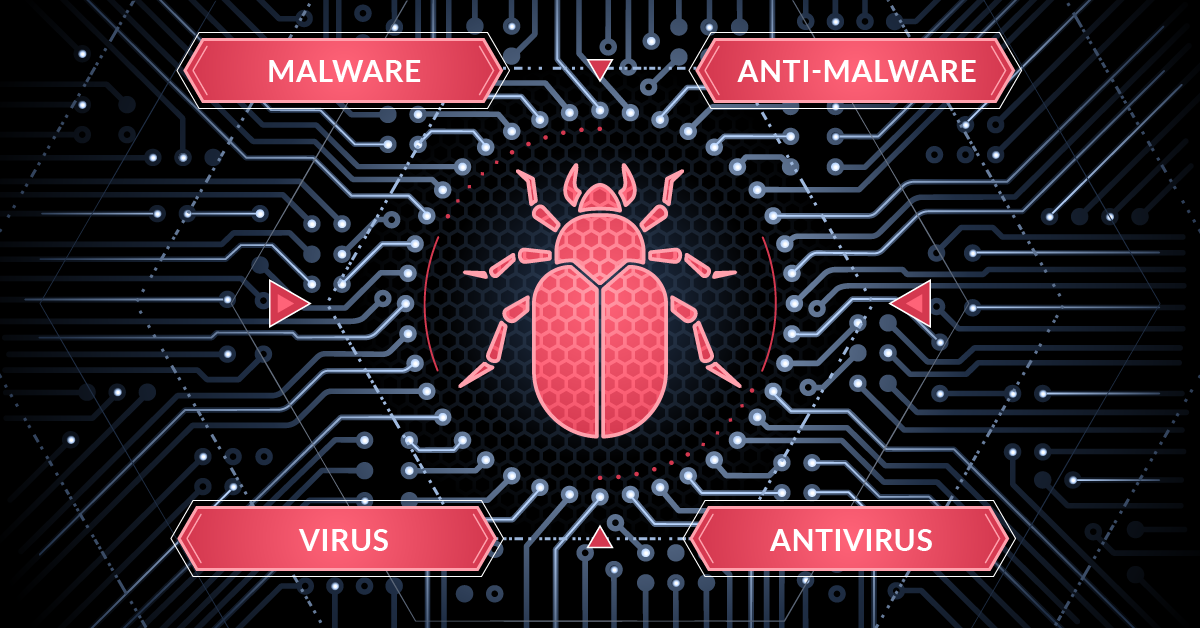Romeo once asked the now infamous question, “what’s in a name?” If he’d been asking about malicious software, Juliet surely would have answered, “well, it’s complicated.” The world of cybersecurity has been such a goldmine of new terms and buzzwords that it is easy to get them a bit jumbled. Read on to find out the difference between malware and a virus, and how you can best protect your organization from them.

Viral Terminology
-
Virus- Just like its biological namesake, a computer virus infects a computer system by replicating itself without user permission, inserting its own code into preexisting programs. In order to spread to other systems, the virus must be attached to a file or executable program, and only infects a system when opened. This typically causes various amounts of damage, from impeding work through annoying popups to causing a complete system crash.
-
Worm- Similar to a virus, a worm can replicate itself on a computer system and cause varying levels of damage. Unlike a virus, a worm is a standalone program, and does not need to be attached to a file and opened to spread. A worm exploits vulnerabilities in a system, and uses network connections to infect other systems with similar weaknesses.
-
Spyware- Spyware is software that monitors, collects, and transmits data from a computer system without a user’s or organization’s knowledge.
-
Ransomware- Ransomware is software that holds data hostage, with the threat to publish it or destroy it unless a ransom is paid.
Building Malware Defenses
With all these destructive pieces of malware, how can your organization protect itself? To truly defend your environment, it’s vital to have a solution that guards from as many pieces of malware as possible. For example, antivirus software that only protects a system from viruses can’t block something like the cryptojacking software described above.
Just as Romeo explained to Juliet, you can’t simply rely on name to ensure that your solution is the right one. Since the terms virus and malware have been so often used interchangeably, both anti-malware software and antivirus solutions can both protect against different types of malware. It’s important to focus more on a specific product and what it does, instead of what it’s called.
Powertech Antivirus provides server-level malware protection for organizations running Linux on Power, Linux on IBM z, AIX, and IBM i. With its robust defenses, it detects and removes viruses, worms, Trojans, and more so you can sleep without fear of unwelcome system visitors. Further, using predictive analysis, Powertech Antivirus detects new pieces of malware before they become widespread, so you’re never caught off guard.
Is your system vulnerable to malware?
Assess your risks and get guidance from cybersecurity experts with a no obligation security scan.
